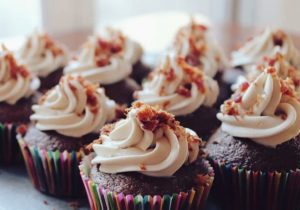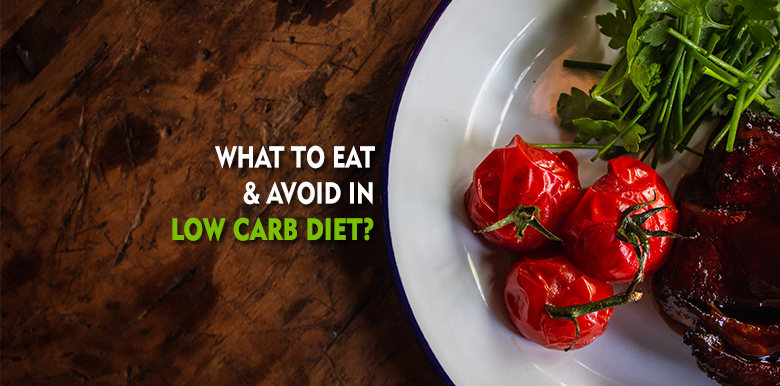A low-carb diet is low in carbohydrates, primarily found in sugary foods, pasta and bread. Instead, you eat whole foods including natural proteins, fats and vegetables.
Studies show that low-carb diets result in weight loss and improved health markers. These diets have been in common use for decades and are recommended by many doctors. Best yet, there’s usually no need to count calories or use special products. All you need to do is to eat whole foods that make for a complete, nutritious and filling diet.
Foods to eat

Low Carb Diet
Meat: Any type: Beef, pork, lamb, game, poultry, etc. Feel free to eat the fat on the meat as well as the skin on the chicken.
Fish and seafood: All kinds: Fatty fish such as salmon, mackerel, sardines or herring are great, and might even have health benefits due to high amounts of omega-3 fatty acids.
Eggs: All kinds: Boiled, fried, scrambled, omelets, etc. You may want to choose organic eggs, if possible.
Natural fats and high-fat sauces: Using butter and cream for cooking can make your low-carb foods taste better and can make you feel more satisfied.
Vegetables that grow above ground: Cauliflower, broccoli, cabbage and Brussels sprouts, kale, collards, bok choy, spinach, asparagus, zucchini, eggplant, olives, spinach, mushrooms, cucumber, avocado, onions, peppers, tomatoes, lettuce, other kinds of leafy greens etc. These are lowest in net carbs and can be enjoyed at all levels of carb restriction. However, if you are following a keto diet (< 20 grams of carbs per day), you may need to limit your portions for certain types, like bell peppers and Brussels sprouts.
Dairy products: Feel free to choose full-fat options like real butter, cream (40% fat), sour cream, Greek/Turkish yogurt and high-fat cheeses, which can help you stay full and satisfied.
Nuts: Great for a treat (in moderation) instead of popcorn, candy or chips.
Berries: Okay in moderation, if you do not need to be super strict with carbs.
Foods to Avoid –

Food to avoid
Sugar: The worst choice, period. Soft drinks, candy, juice, sports drinks, chocolate, cakes, buns, pastries, ice cream, breakfast cereals – avoid them all. Sugar can also be addictive.
Starch: Flour, wheat products or other refined cereal grains, even if labelled “gluten free.”20 This means bread, buns, pasta, crackers, porridge, muesli. Whole grains are included here too – on a low-carb diet they are just less bad. Also potatoes (sweet potatoes too), potato chips, French fries, corn products and popped corn, rice. Do check out, however, some of the low-carb versions of these foods:
– Low-carb bread
– Low-carb “mashed potatoes”
– Low-carb “rice”
– Low-carb porridge
– Low-carb “pasta”
Beans and lentils are also relatively high in carbs, so they’re not good low-carb options. Moderate amounts of certain root vegetables may be OK (unless you’re eating extremely low carb).
Beer: Made from fermented grain and hops, beer is basically bread in liquid form. Avoid. Lower-carb beers (typically called “lite beer” in the US) are available, but keep in mind that they still contain more carbs than dry wine or pure liquor.
Fruit: While berries like blueberries, raspberries and strawberries are fine in small to moderate amounts, be careful with other fruit. They are fairly high in carbs and sugar, which can raise blood sugar, may slow down weight loss and can possibly worsen metabolic issues.
A low carb diet can be a powerful tool for treatment of excess weight. In addition to helping with weight reduction, a low carb diet can be helpful in treating conditions such as diabetes and sleep apnea. However, with proper planning, knowing what to eat on a low carb diet can be simple.
